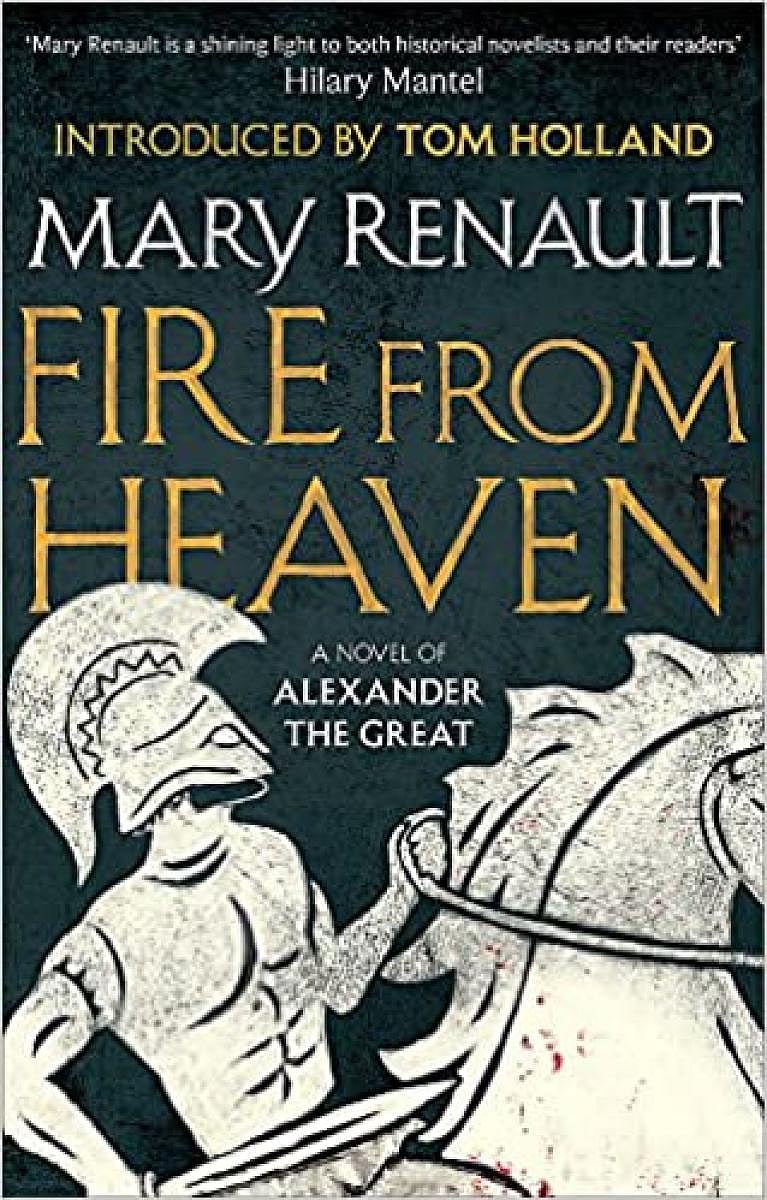
In his introduction to the 2014 edition of Mary Renault’s Fire from Heaven, the writer Tom Holland refers to the book as “the greatest coming-of-age story ever to double as a work of historical fiction”.
Since the book is about Alexander the Great, the legendary conqueror and one who has inspired countless others in the centuries since the establishment and dissolution of his empire, it is a given that it would be an epic. It would be impossible to write a dull account of Alexander’s youth — how could a prosaic upbringing result in a young man hungering to conquer unknown lands?
Renault, who was an out lesbian at a time when homosexuality was a crime in large parts of the world, started obsessing about Alexander and ancient Greece during her time as a student in Oxford in the 1920s. However, it was only after she had migrated to South Africa in 1948 that she was able to openly write books about gay lives and relationships. Fire from Heaven was published in 1969 and would win great acclaim and be nominated for the “lost Booker of 1970” four decades later.
Alexander the Great was, for Renault, an epitome of freedom. Freedom to be oneself, freedom to roam the world and seduce it and make it in your image. Fire from Heaven is suffused with an appreciation and love for the beauty and strength of Alexander. Historical records do not have much information about Alexander’s childhood, so Renault could fill in the gaps with her own imaginative interpretation of a royal childhood in ancient Macedonia.
The figure that looms largest after his father Philip, king of the Macedonians, was Alexander’s mother, Olympias. Famously played with camp abandon by Angelina Jolie in Oliver Stone’s Alexander (which used Renault’s books as source material), Olympias emerges from these pages and Renault’s words as a powerful force who moulded her son as much as possible for as long as she had him.
Alexander’s education was entrusted to the philosopher Aristotle and Renault paints a vivid portrait of the relationship between teacher and student. Aristotle accepted the responsibility since the chance to be a king-shaper was a “prize every philosopher prayed for” and it had fallen to him.
This was not the time to look a gift horse in the mouth — and this would prove to be a meeting of minds that would change the way large swathes of the populated world would be governed.
The book also portrays with great affection and an eye for nuance the lifelong friendship and love between Alexander and Hephaistion. Theirs was a relationship that went through great personal tribulations in their youth (almost entirely instigated by Philip who sees both promise and threats in his son) and as time passed was strengthened through facing the violence and bloodshed of assassination attempts, wars and conquests. Renault’s unparalleled ability to sensitively portray the precarious lives and loves of young men in the ancient Greek world won her legions of gay fans. No other writer was narrating these stories with the same compassion and empathy at the time her books on Alexander and other fiction centred on homosexual love were being published. It is no surprise therefore to learn how many contemporary gay authors found creative inspiration and the freedom to be true to themselves after first encountering her works during their youth.
But it wouldn’t be quite right to pigeonhole Renault as just a great gay writer — she was also a fiction writer of rare skill who could bring alive legendary historical figures and make them human. If you’re looking for a book that allows you to get lost in the past, then let Fire from Heaven take you there.
The author is a Bengaluru-based writer and communications professional with many published short stories and essays to her credit.
That One Book is a fortnightly column that does exactly what it says — takes up one great classic and tells you why it is (still) great. Come, raid the bookshelves with us.